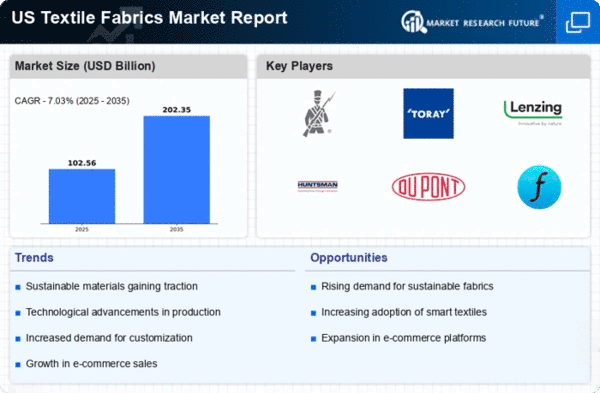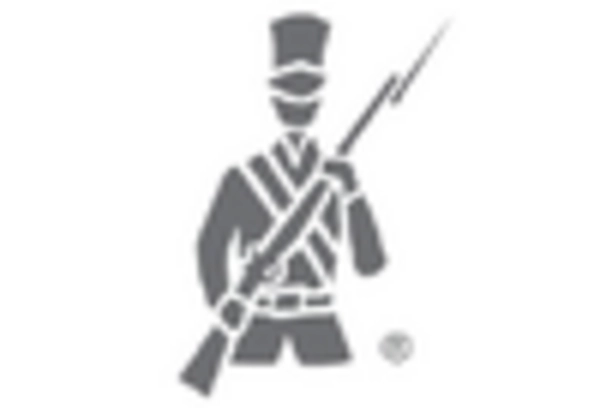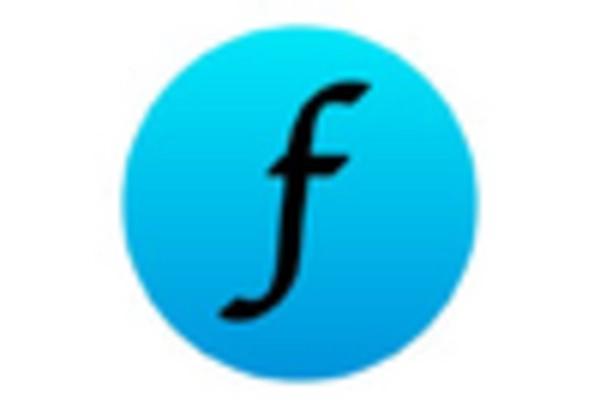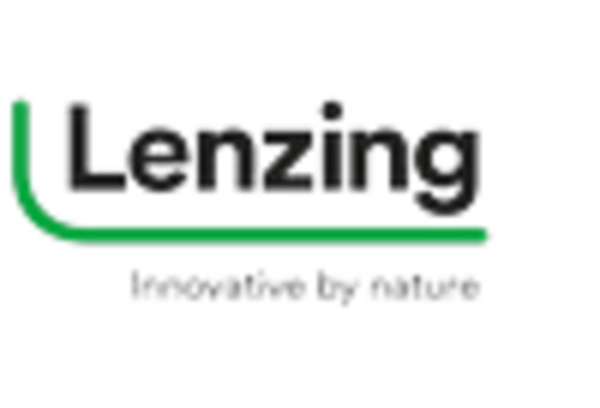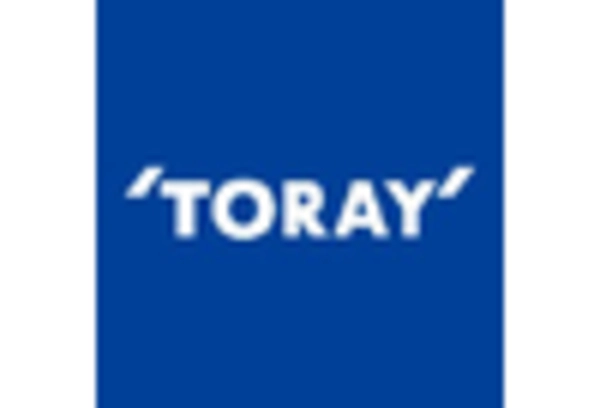The textile fabrics market is currently characterized by a dynamic competitive landscape, driven by innovation, sustainability, and technological advancements. Key players such as Berkshire Hathaway (US), DuPont (US), and Huntsman Corporation (US) are actively shaping the market through strategic initiatives. Berkshire Hathaway (US) has focused on diversifying its portfolio, emphasizing sustainable practices in its textile operations, which aligns with the growing consumer demand for eco-friendly products. Meanwhile, DuPont (US) has been investing heavily in research and development to enhance its product offerings, particularly in high-performance fabrics, thereby reinforcing its position as a leader in innovation. Huntsman Corporation (US) is also making strides by expanding its specialty chemicals segment, which supports the textile industry, indicating a trend towards integrated solutions that enhance fabric performance.The business tactics employed by these companies reflect a concerted effort to optimize supply chains and localize manufacturing. The market structure appears moderately fragmented, with a mix of large multinational corporations and smaller niche players. This fragmentation allows for a variety of competitive strategies, as companies leverage their unique strengths to capture market share. The collective influence of these key players fosters a competitive environment where innovation and sustainability are paramount, driving the industry towards more responsible practices.
In September DuPont (US) announced a partnership with a leading technology firm to develop AI-driven textile solutions aimed at enhancing production efficiency and reducing waste. This strategic move underscores DuPont's commitment to integrating advanced technologies into its operations, potentially setting a new standard for efficiency in the textile sector. The collaboration is expected to yield significant improvements in manufacturing processes, aligning with the industry's shift towards digitalization.
In October Huntsman Corporation (US) launched a new line of sustainable textile chemicals designed to minimize environmental impact during production. This initiative not only reflects Huntsman's dedication to sustainability but also positions the company favorably in a market increasingly influenced by eco-conscious consumers. The introduction of these products may enhance Huntsman's competitive edge, as brands seek to align with sustainable practices.
In August Berkshire Hathaway (US) acquired a smaller textile manufacturer specializing in organic fabrics, further diversifying its portfolio. This acquisition is likely to enhance Berkshire's market presence in the organic segment, catering to the rising demand for sustainable textiles. The strategic move indicates a broader trend of consolidation within the industry, as larger players seek to bolster their offerings through targeted acquisitions.
As of November the textile fabrics market is witnessing a pronounced shift towards digitalization, sustainability, and AI integration. These trends are reshaping competitive dynamics, with strategic alliances becoming increasingly vital for success. Companies are moving away from traditional price-based competition, focusing instead on innovation, technology, and supply chain reliability. This evolution suggests that future competitive differentiation will hinge on the ability to adapt to changing consumer preferences and technological advancements, ultimately fostering a more sustainable and efficient textile industry.


